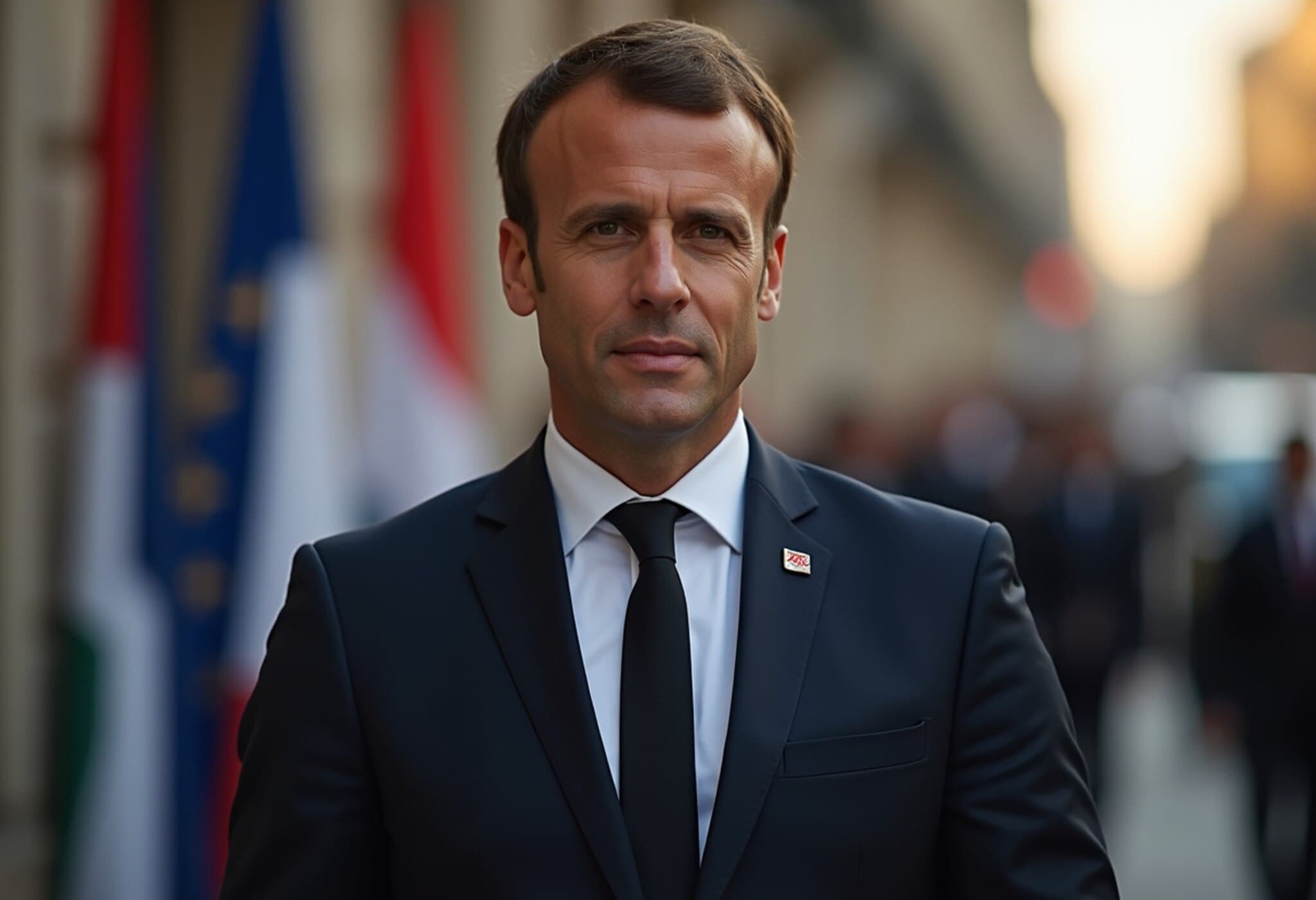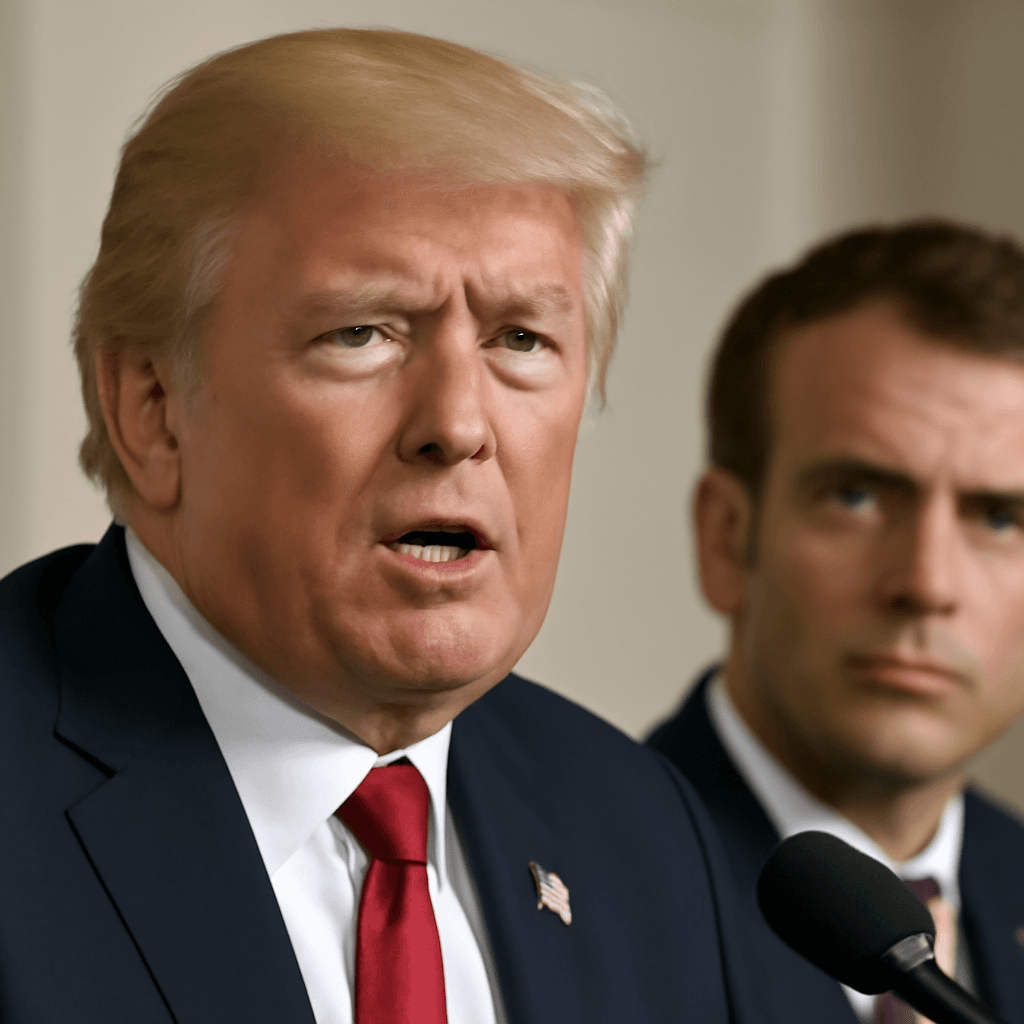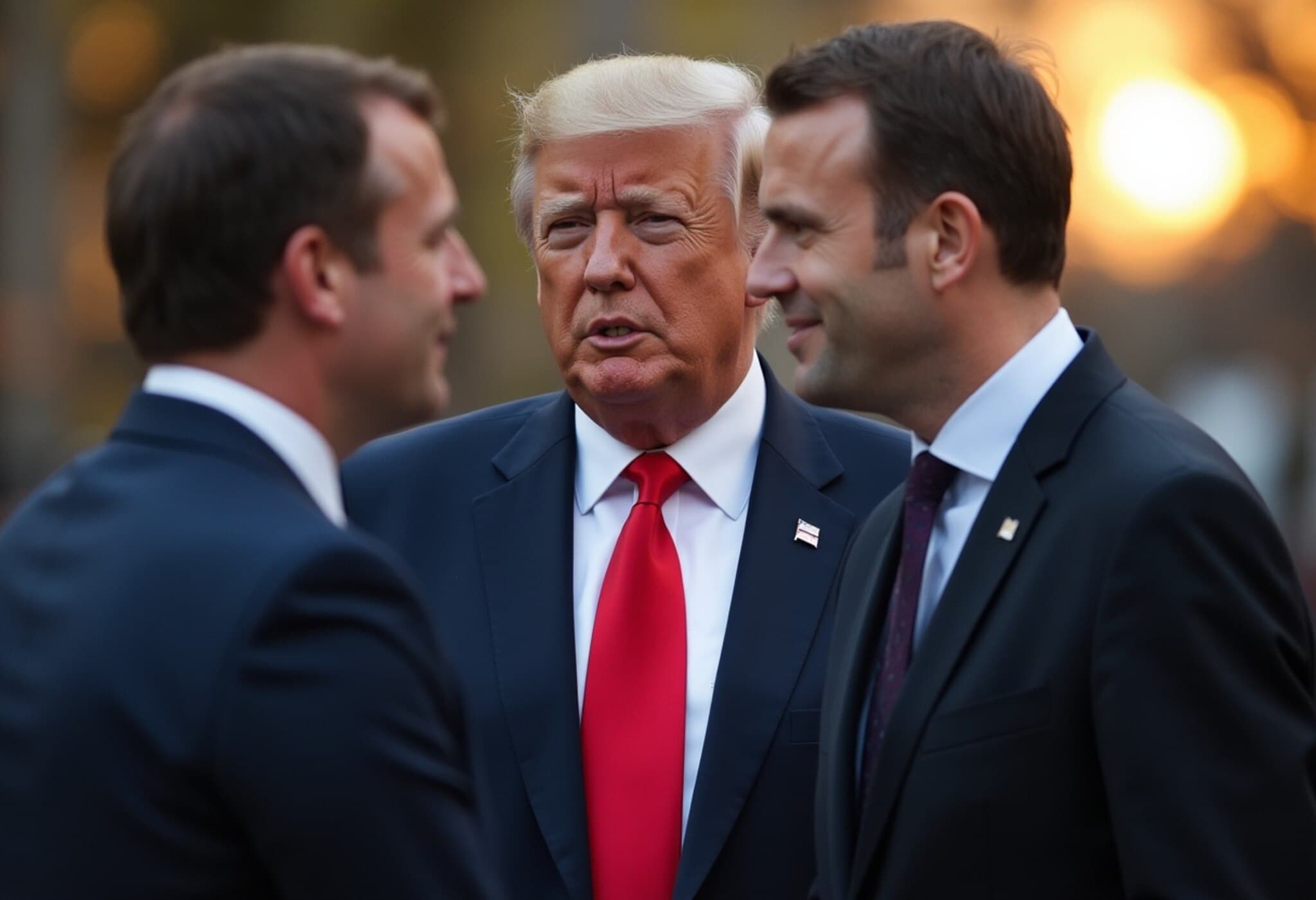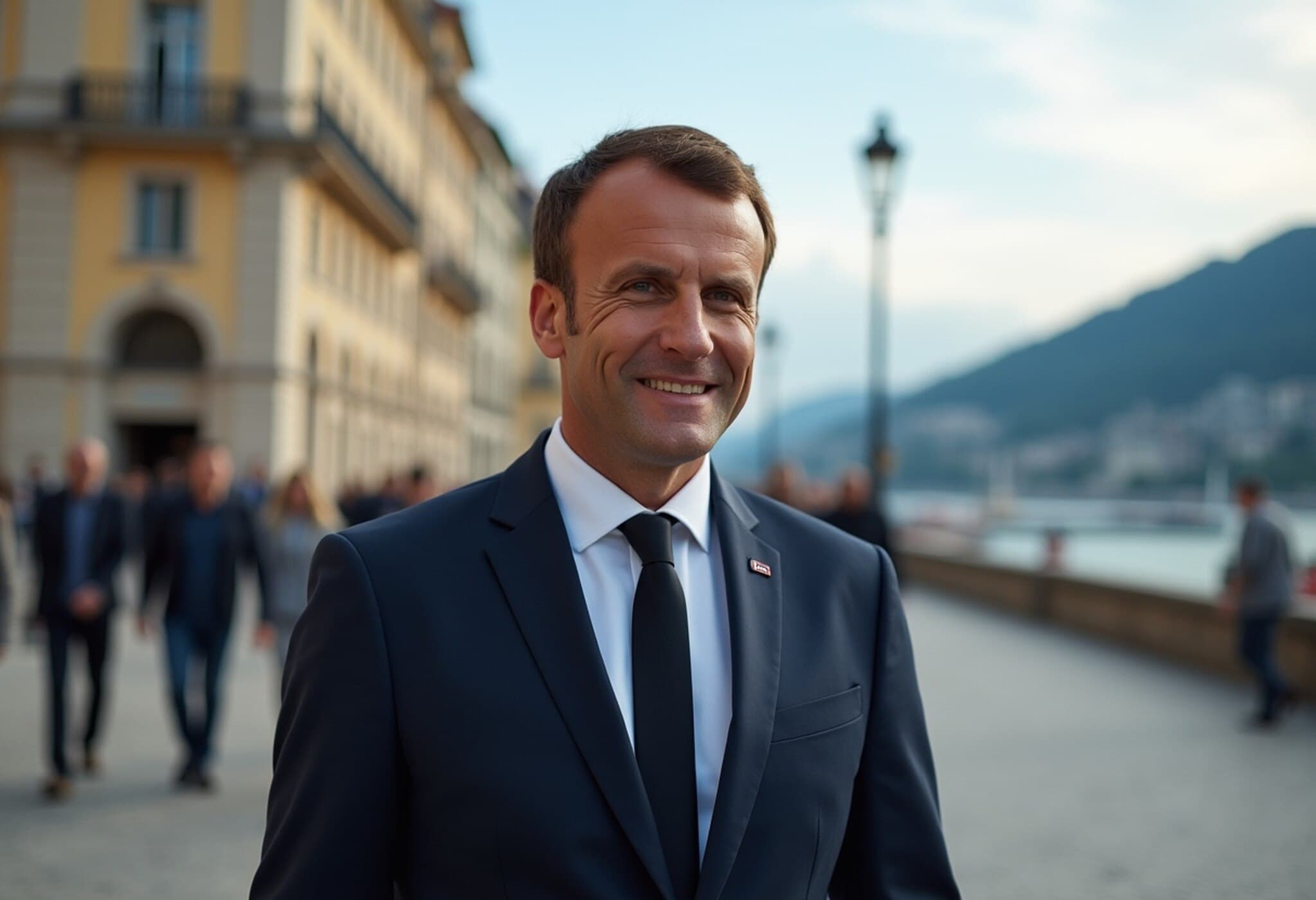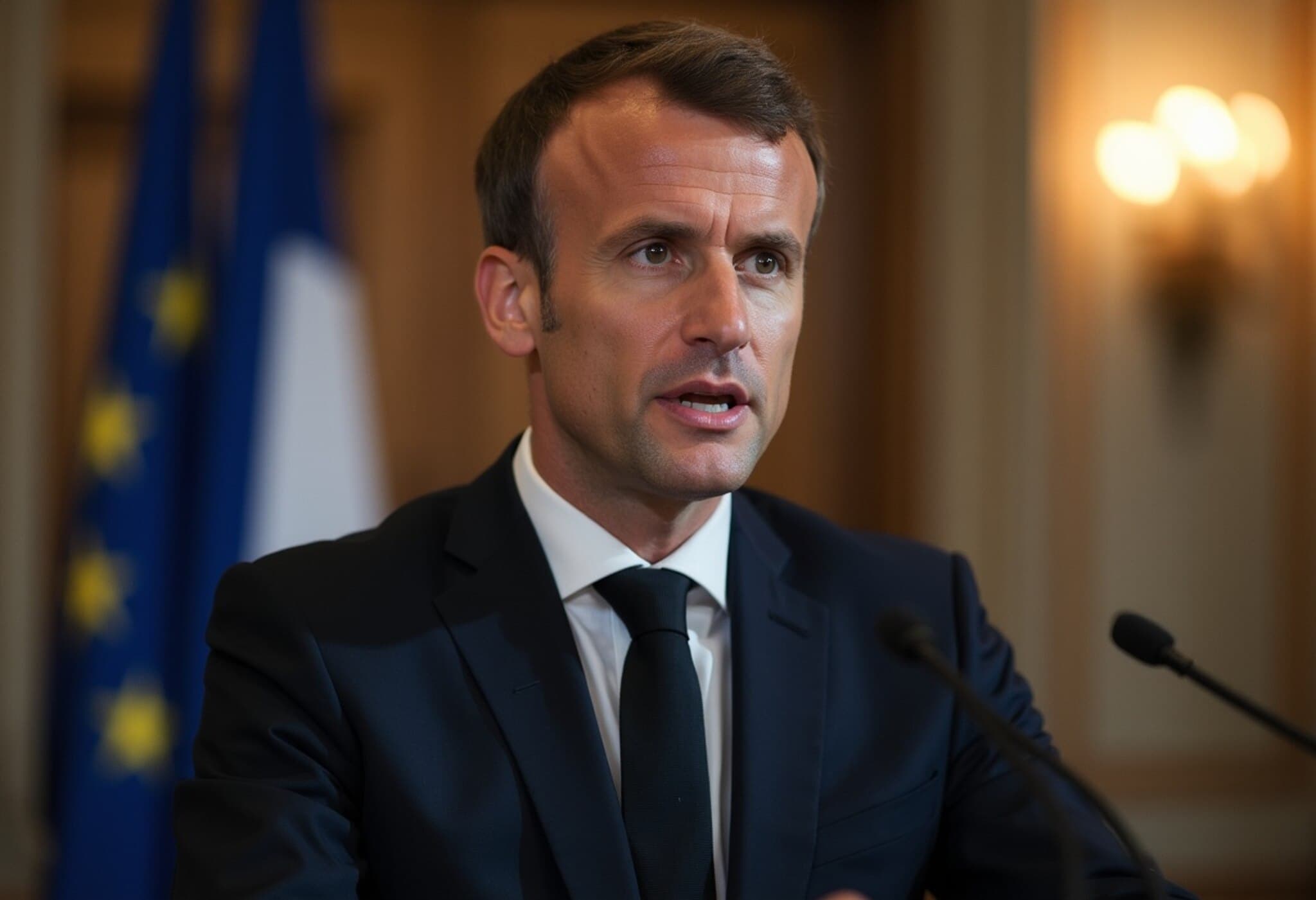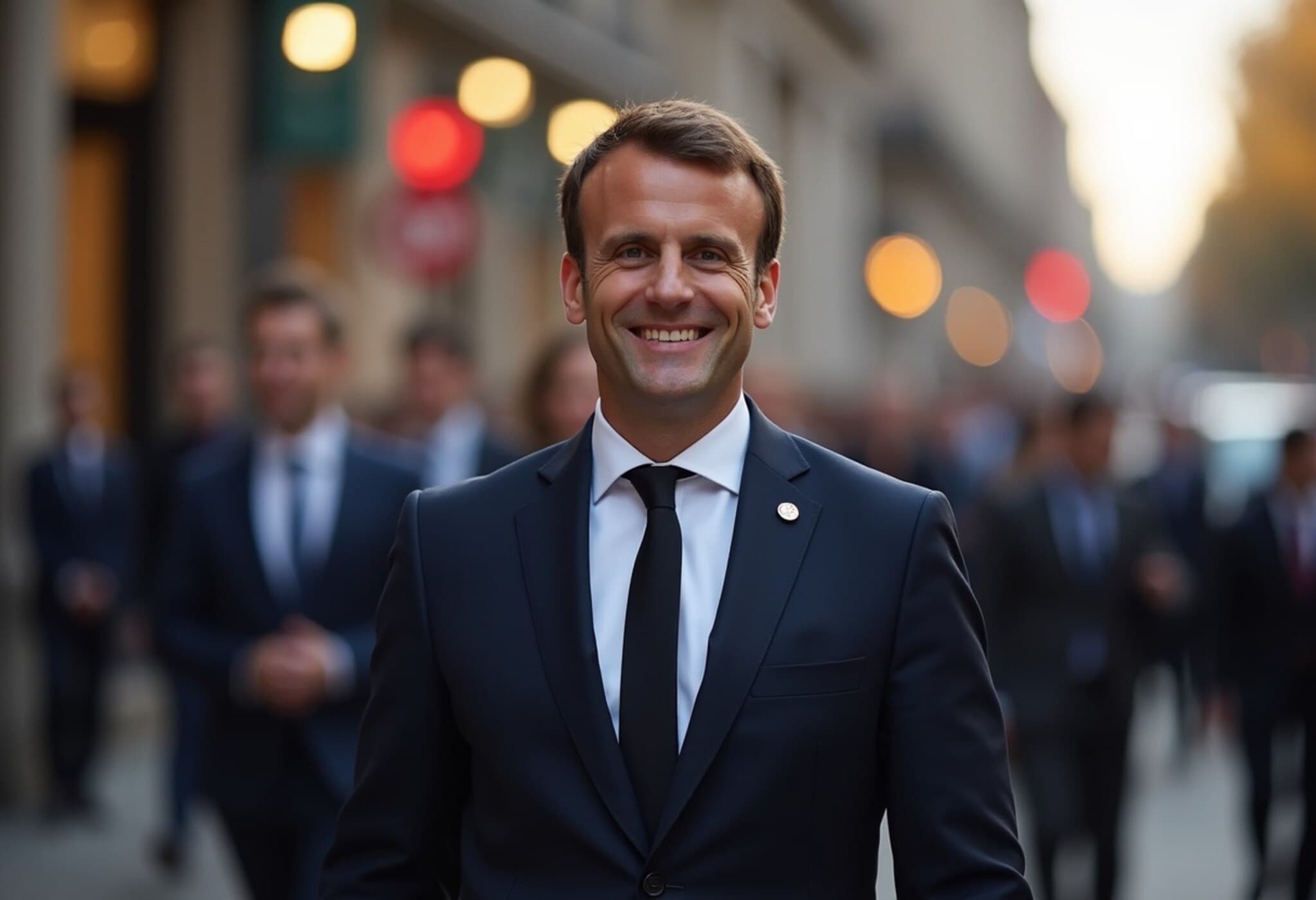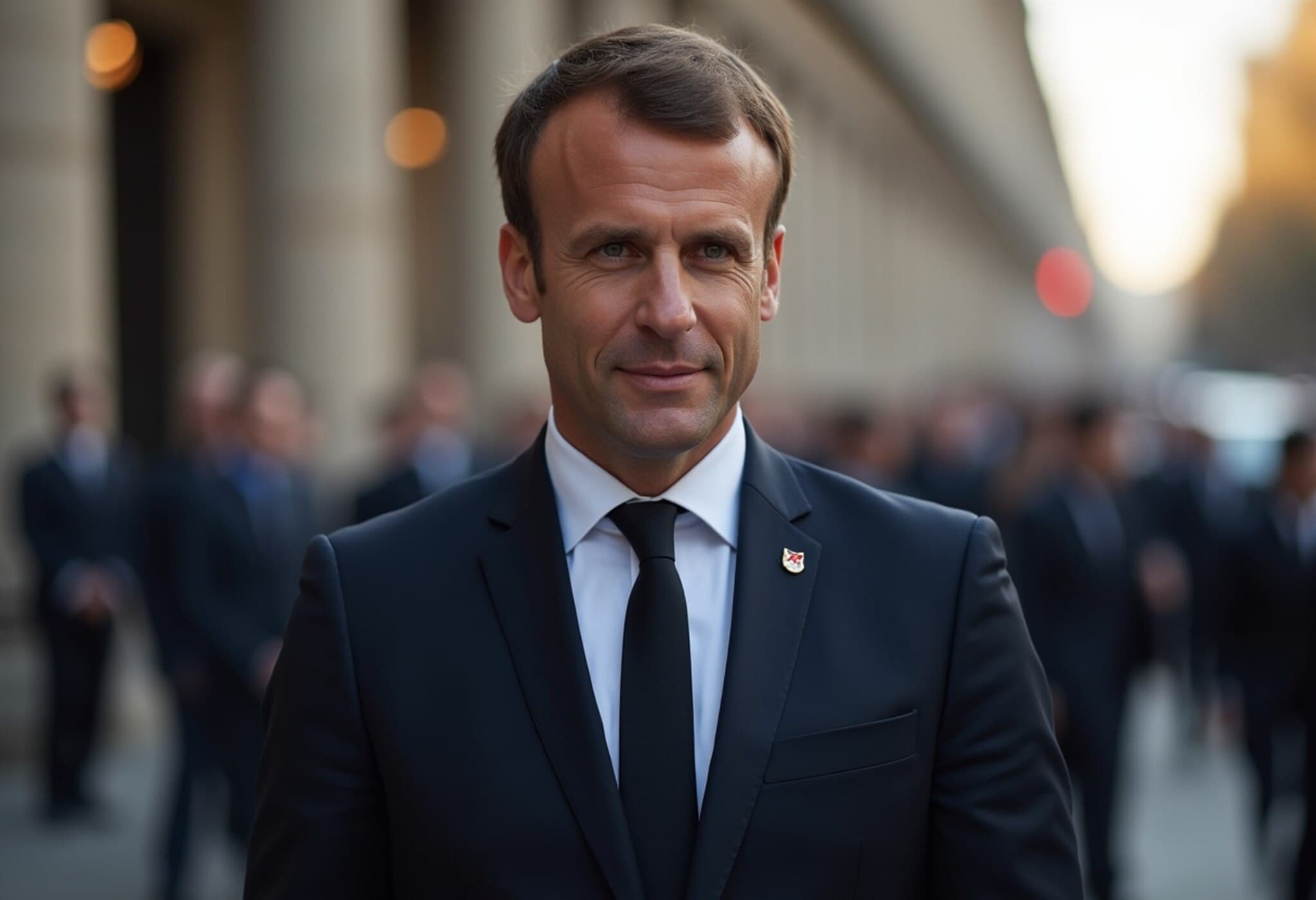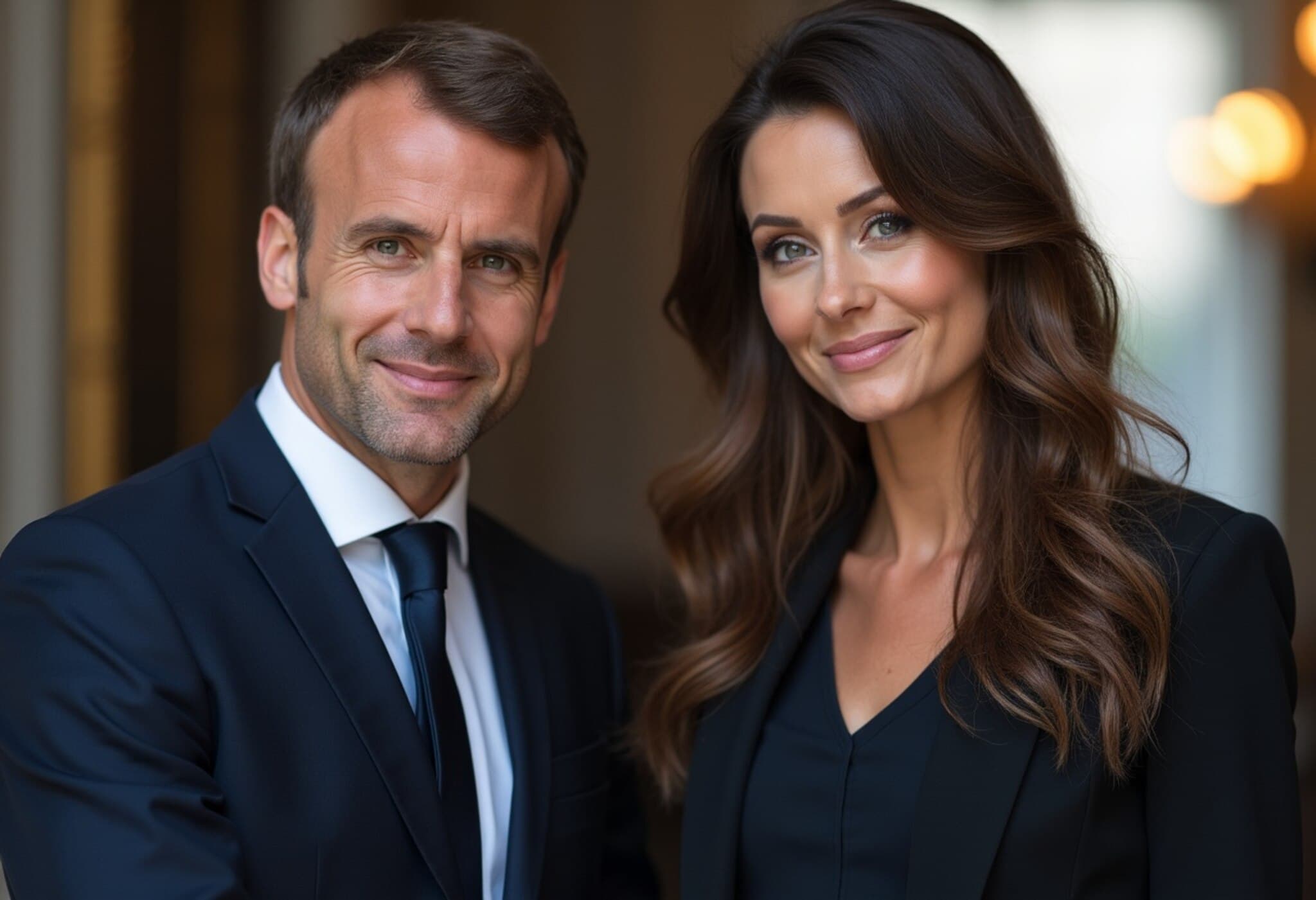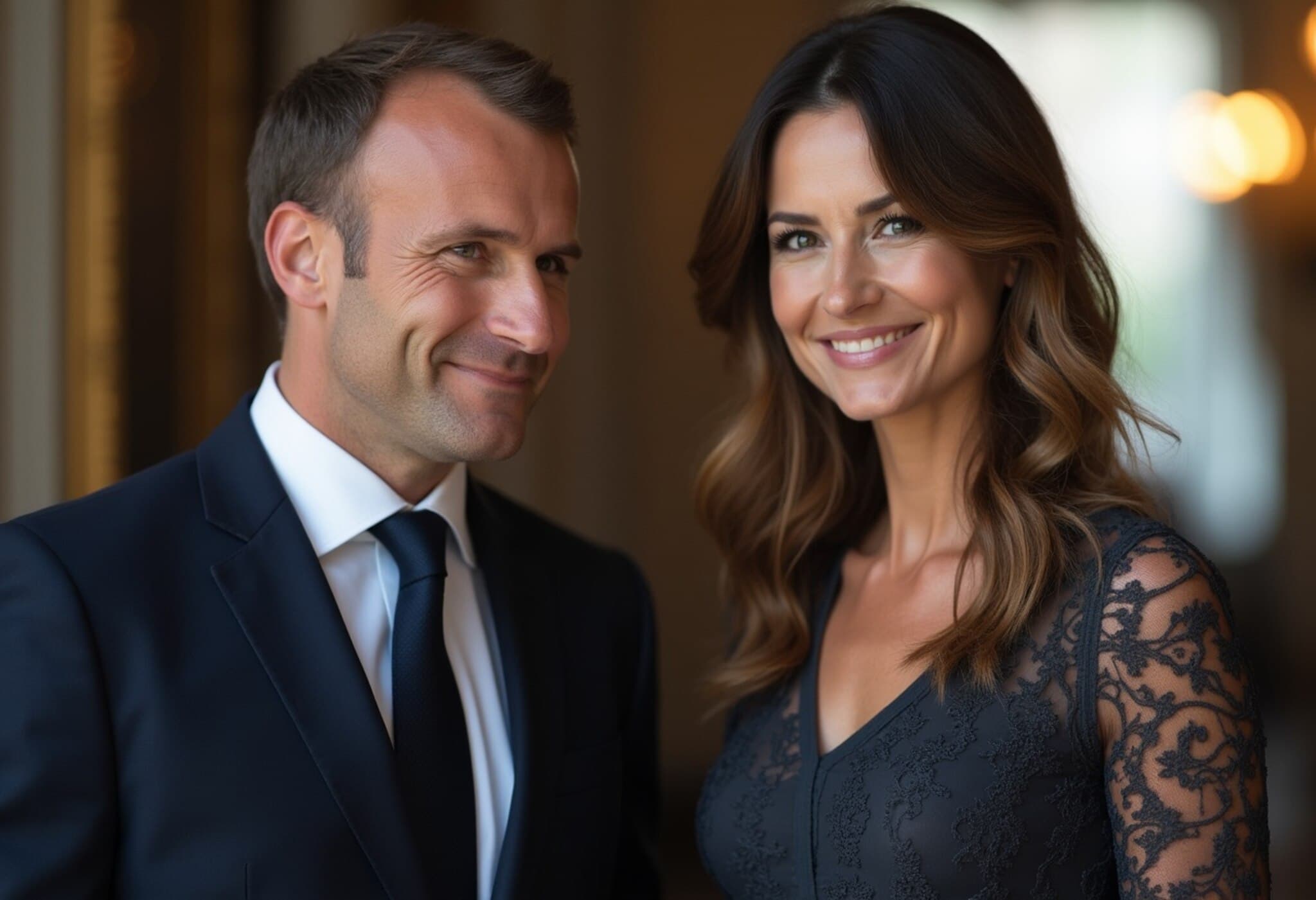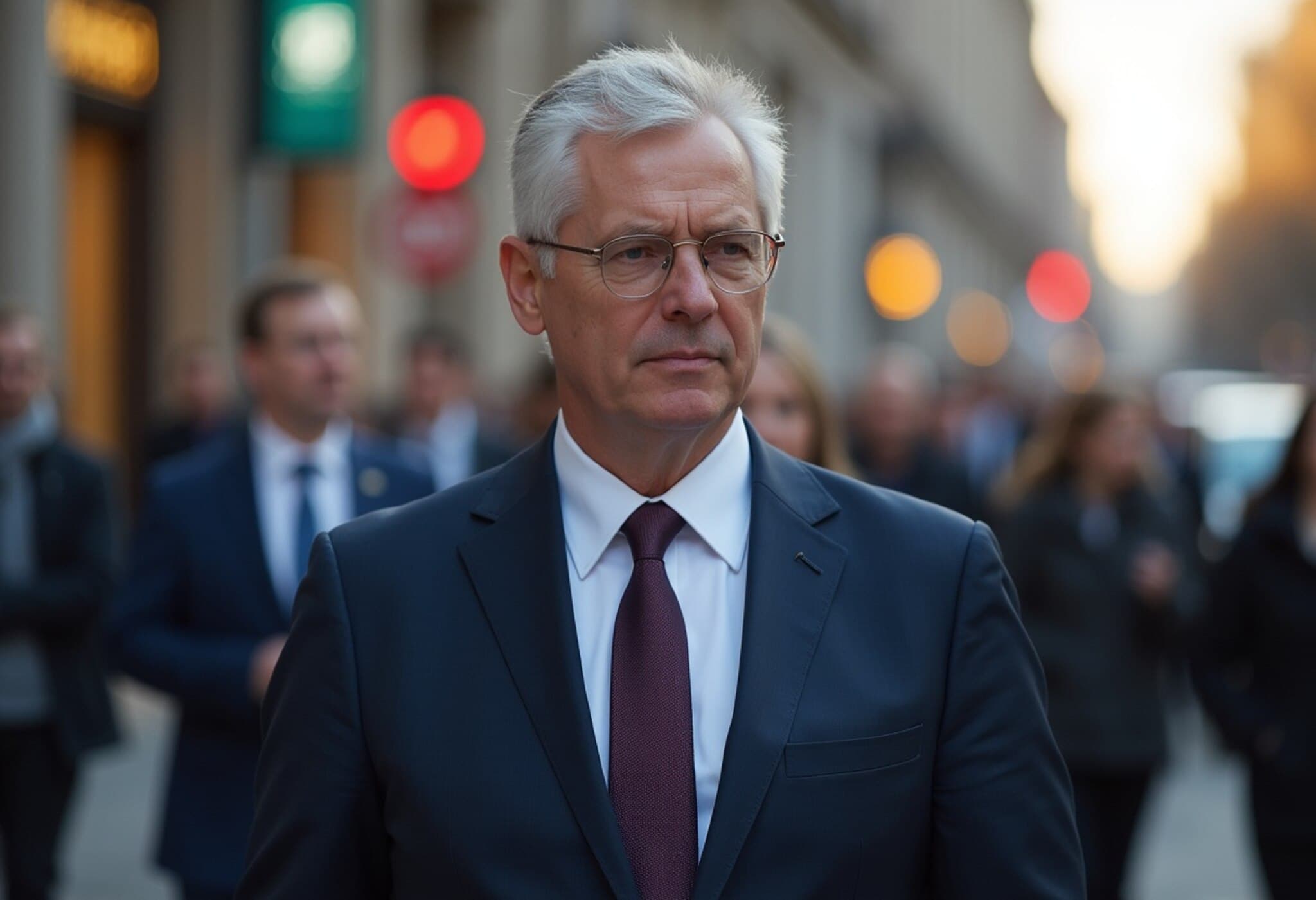Macron’s Bold Recognition of Palestine: A Potential Game-Changer in West Asia
In a striking diplomatic development set to reverberate across global politics, French President Emmanuel Macron has declared his intention to officially recognize a Palestinian state by September 2025. While this act may not immediately shift the harsh ground realities in Gaza or halt Israel’s ongoing military offensive, it undeniably revitalizes a global conversation about peace, statehood, and the future of West Asia, particularly as the United States and Israel maintain a hardened stance on negotiations.
Breaking the Diplomatic Deadlock
Macron’s announcement marks a potential watershed moment. If France follows through, it will become the first Western permanent member of the United Nations Security Council to extend formal recognition to Palestine, aligning politically with Russia and China, both of whom acknowledged Palestine years ago. This move could recalibrate power balances within the council and significantly increase pressure on Western allies to reassess their positions on the Israeli-Palestinian conflict.
Previously, France’s efforts to secure broader consensus among key G7 partners like the United Kingdom and Canada had stalled, primarily due to the concern of alienating the United States. Macron’s decision to act independently signals a strategic pivot, one that French diplomats suggest is the first step toward rallying global support ahead of a planned comprehensive peace summit scheduled for September.
Embracing Diplomacy Over Military Solutions
Amid ceaseless conflict in Gaza and mounting civilian casualties, Macron has framed his recognition initiative as an urgent call to revive the long-abandoned two-state solution. In a heartfelt letter to Palestinian Authority President Mahmoud Abbas, he expressed profound frustration at the dwindling prospects for a negotiated peace and emphasized that recognition is essential to preserving diplomatic avenues that honor the legitimate aspirations of both Palestinians and Israelis.
“The prospect of a negotiated solution… seems increasingly distant. I cannot resign myself to that,” Macron asserted, underscoring France’s commitment to proactive diplomacy rather than military stalemates.
Domestic, Regional, and Global Implications
Macron’s move also responds to intense domestic pressure within France, where public sentiment increasingly condemns the humanitarian crisis in Gaza. As a key player in both the European Union and the U.N. Security Council, France’s leadership could ripple far beyond its borders, potentially disrupting the complacency of stalemated Western diplomatic efforts.
Strategic analysts observe that Macron is carefully timed this initiative to define his foreign policy legacy before the end of his presidential term. With the United States and Israel reluctant to advance peace talks and even dismissive of state recognition efforts, Macron’s bold step risks further isolating these allies on the Security Council—for the first time in decades.
David Rigoulet-Roz, senior fellow at the French Institute of Strategic Analysis, notes, “France’s endorsement as the first G7 and leading European power to recognize Palestinian statehood lends this move profound symbolic and geopolitical significance. It’s a diplomatic precedent that may compel other Western nations to rethink their stance.”
Global Recognition Landscape and Western Tensions
- 147 countries have already recognized Palestine globally.
- France would become the 148th and the most influential European nation to take this step.
- Germany has explicitly ruled out recognizing Palestine at this time.
- The UK has no immediate plans to follow France’s lead, highlighting a split among Western powers.
The United States and Israel have sharply criticized Macron’s announcement. Israeli officials and American representatives denounce it as rewarding terrorism in the wake of Hamas’s October 7, 2023 attacks, which ignited the current conflict escalation. Former U.S. President Donald Trump dismissed the move as “inconsequential,” while still personally referring to Macron in a cordial tone.
The Road Ahead: Diplomatic Challenges and Opportunities
With Gaza devastated and Israeli settlements expanding in the West Bank, skepticism about the feasibility of the two-state solution remains high. Yet Macron’s recognition could serve as a diplomatic lever, challenging entrenched narratives and reigniting discussions about equitable solutions amidst persistent violence.
By shaking the diplomatic status quo, France’s initiative might compel Western capitals to address difficult questions: How long can military approaches overshadow dialogue? Is there space to reinvigorate peace efforts without alienating key stakeholders? And what role should Europe play in steering the Middle East toward stability?
Editor's Note
Emmanuel Macron’s announcement to recognize Palestine represents more than a symbolic gesture — it is a calculated effort to reshape faltering diplomacy in West Asia. As the United States and Israel stand firm against recognition, France’s move highlights shifting global alliances and underscores the urgent need for innovative peace strategies. Readers should consider how this evolution affects not only geopolitical power structures but also the hopes and hardships of millions living amid conflict. The coming months will be crucial to watch whether Macron’s bold step catalyzes meaningful progress or deepens existing divides.

